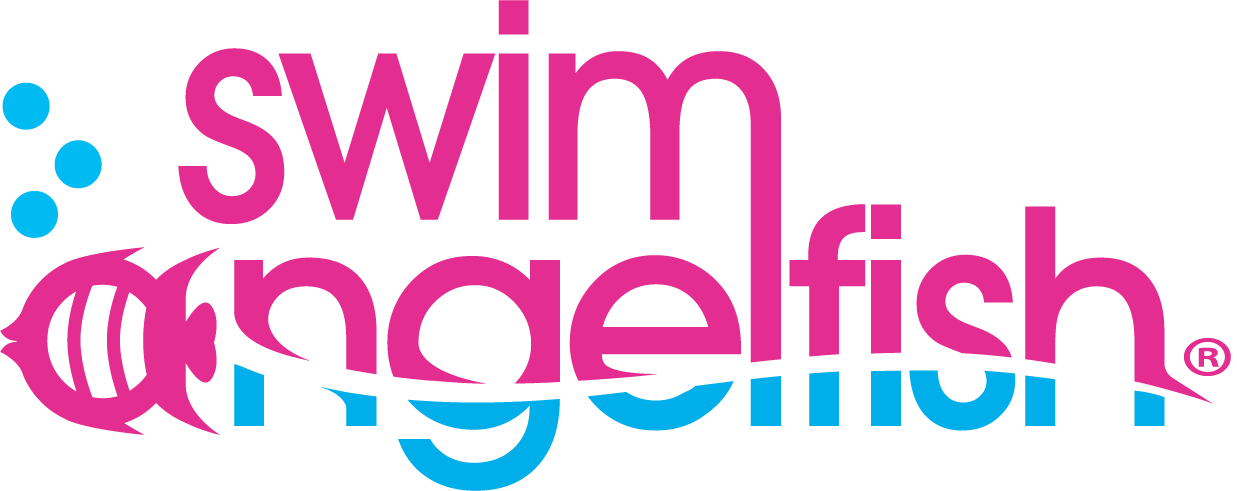What is Adaptive Swim and how does it work for individuals with special needs, disabilities or learning challenges? Swimming is an important life skill for everyone, but not everyone learns how to swim in the same way. Some swimmers not only have to overcome obstacles relating to swim skill attainment, they also have to overcome physical, developmental, cognitive, and/or sensory obstacles at the same time.
Sounds pretty challenging right? That’s why adaptive swim lessons (also known as Special Needs Swim Lessons, Swimclusion, SEN(D) or Sensory Swim) use an adaptive approach tailored to meet different learning needs. In this article, we help to break down what adaptive swimming is, who it benefits, and how you can experience this game-changing approach to learning to swim.
- What is Adaptive Aquatics?
- What are Adaptive Swim Lessons?
- Who Benefits From Adaptive Swim Lessons?
- What Are the Different Types of Adaptive Swim Lessons?
- How Do You Know if Your Child Needs Adaptive Swim Lessons?
- Adaptive Swim Tips for Parents
- When Should I Seek Out an Adaptive Lesson?
- What Are the Signs That My Child Is Not Progressing With Swim Skills?
- Where Do You Find Adaptive Swim Lessons?
- What Is the Biggest Challenge a Parent Will Face in Finding a Swim Instructor?
- How Do I Know if the Swim Instructor Is Able to Adapt to My Child’s Needs?
- What Questions Should I Ask to Find Out How They Plan to Teach My Swimmer With Autism, Anxiety, Down Syndrome, Sensory or Motor Challenges?
- Adaptive Swim Tips for Swim Instructors and Coaches
Adaptive Aquatics is a type of aquatic programming where the swim instructor or aquatic therapist is skilled in the process of assessing challenges, identifying roadblocks, and implementing strategies using a modified, flexible approach.
Traditional methods combined with extra patience isn’t always enough when it comes to achieving swim skill benchmarks or therapy goals with this population. Specialized training is crucial and plays a huge role in the success of clients.
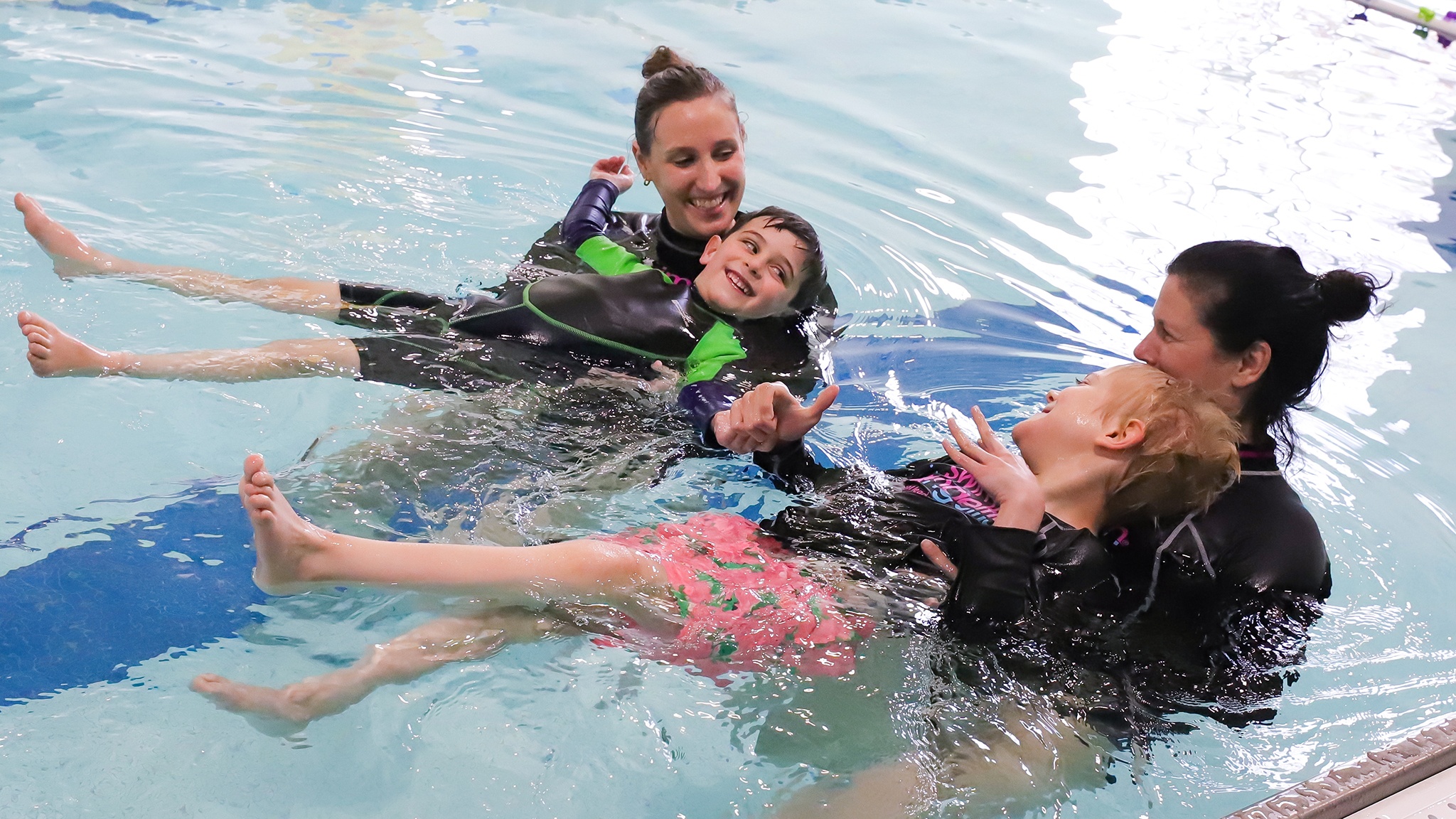
Adaptive swim lessons are designed specifically for individuals with disabilities or special needs. These lessons aim to provide a safe and supportive environment for individuals to learn how to swim, improve their swimming skills, and gain water safety awareness.
The 3 most important things to know about Adaptive Swim Lessons:
A wide range of individuals can benefit from Adaptive Swim lessons. If your swimmer does not have a specific condition but struggles to pay attention, has a fear of the water, has experienced a traumatic water event or has a general lack of water experience, then adaptive swim lessons would be a great choice. This also includes individuals who could make faster progress if they were taught in a way that put them at ease with an adapted approach, considering how they learn best.
Adaptive Swim lessons can be helpful for children with conditions such as:
- Autism Spectrum Disorder (ASD)
- ADHD
- Angelmans Syndrome
- Anxiety
- Auditory Processing Disorder
- Balance Disorders
- Brain Injury
- Cerebral Palsy (CP)
- Chromosomal Abnormalities
- Down Syndrome (DS)
- Fragile X Syndrome
- Muscular Dystrophy
- Motor incoordination
- Multiple Sclerosis (MS)
- Rett Syndrome
- Scoliosis
- Sensory Processing Disorder (SPD)
- Speech Delay
- Spinal Cord Injury (SCI)
- Spinal Muscle Atrophy
- Stroke
- Williams Syndrome
Each swim school usually has its own unique all-abilities swim programs. However, we have found that Adaptive Swim lessons tend to be offered in 3 different ways:
Here are 4 signs that your child might need adaptive swim lessons:
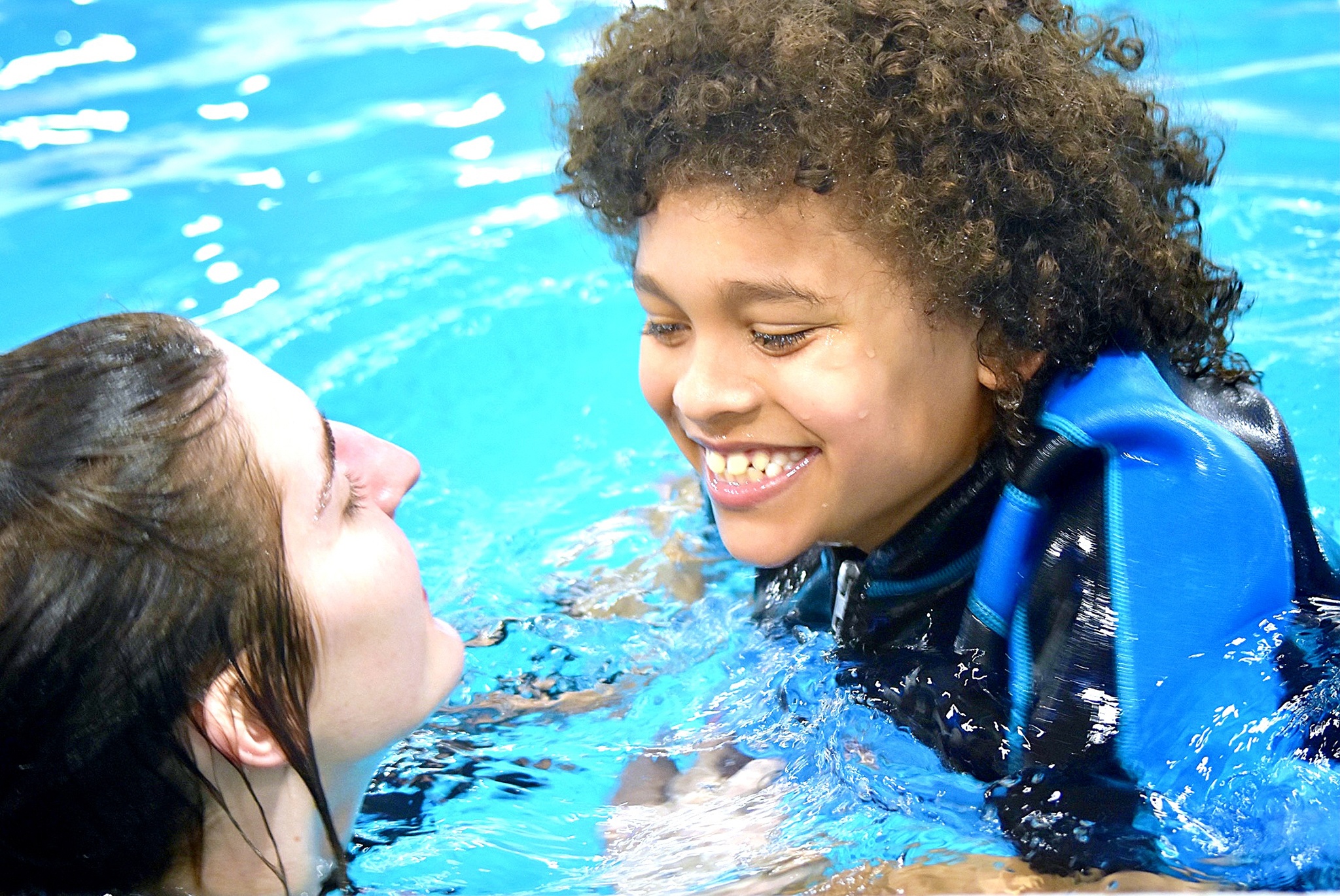
When Should a Swimmer Start Adaptive Swim Lessons?
It’s tricky to know when exactly a swimmer should transition to adaptive swim lessons from traditional swim lessons. We have found that if your child has been in traditional swim lessons for more than 3 months and is falling behind the other children in the class, then it is a good time to work with the swim school to explore different options for your swimmer.
Here’s a few things you can do to start the conversation:
It can seem a little daunting for parents who know that their child needs a different approach during their swim lessons to gain important water safety skills, but they don’t know where to start. We will help you find the answers to your questions so that you can find the right swim instructor and adaptive swim lesson program for your child. We also have a FREE Mini course for parents/caregivers looking for adaptive Swim Tips for their child with special needs.
When Should I Seek Out an Adaptive Lesson?
If you are in a group lesson and week after week (for up to 8-12 visits) your swimmer is not progressing, you should ask what your alternatives are for individualized instruction.
If your swimmer is unable to motor plan the swim strokes or is having weekly challenges with attending to the instructor, this is time to transition to an adaptive swim lesson.
This is critical because you do not want your swimmer to develop routines and rituals where they rely on being held or are not participating fully in the lesson each week. Seek out an adaptive lesson to break the cycle of not progressing and find an instructor who has the specialized training to overcome your swimmers’ underlying problem.
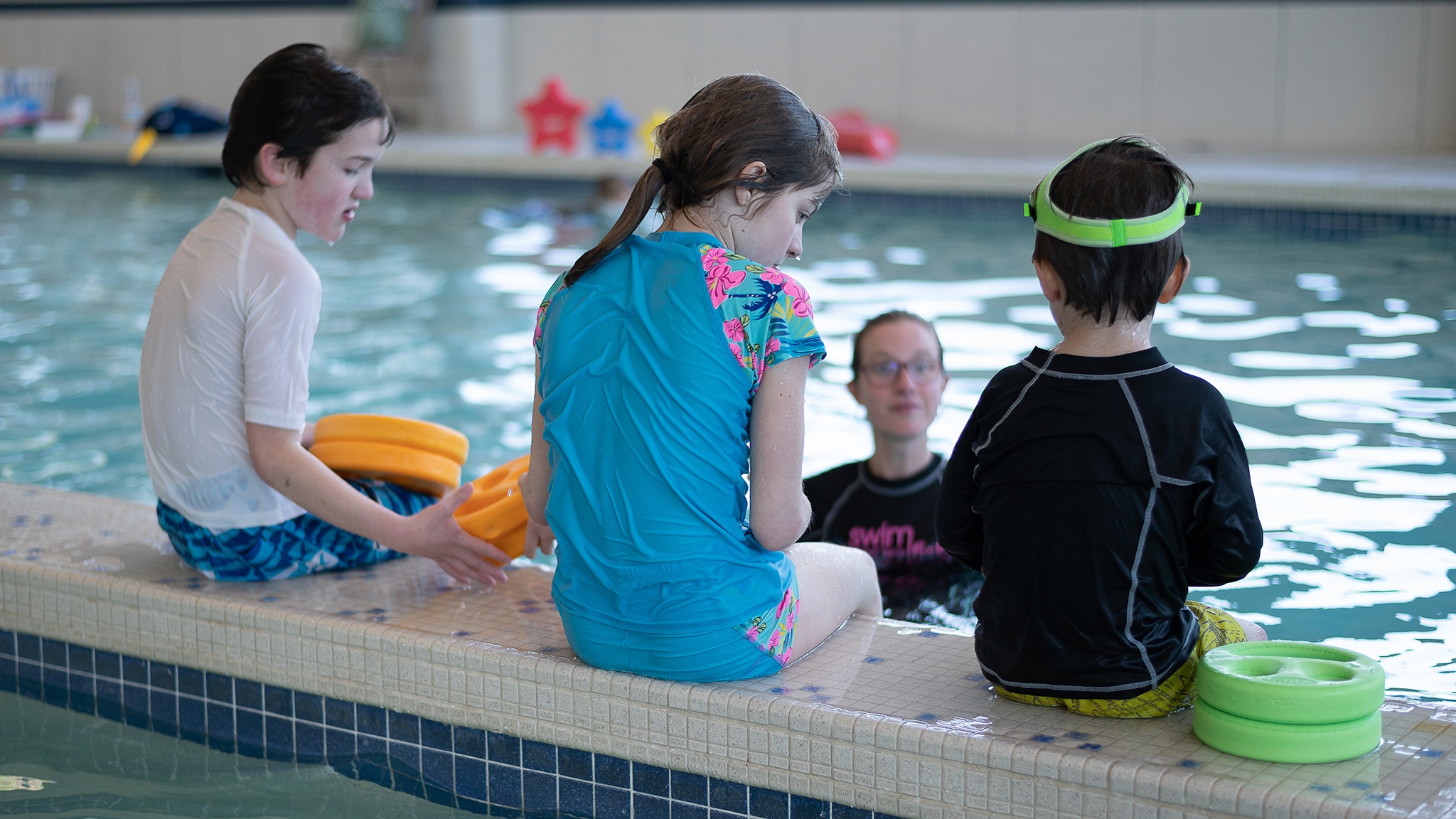
What Are the Signs That My Child Is Not Progressing With Swim Skills?
Your swimmer is not progressing with the swim skill benchmarks listed for the class such as: Submerging, Safety or following along with attention to the group.
Where Do You Find Adaptive Swim Lessons?
Usually, your local aquatic center will advertise its adaptive aquatics or adaptive swim program. Remember, this may be described differently and can include descriptions such as Sensory Swim, Autism Swim, Sensory Friendly Swim, SEN (or SEND), Sensory Enhanced Swim, All Abilities Swim, Swimclusion, Special Abilities and many other variations. The aquatic director, inclusion specialist or program director will be able to tell you about their adaptive swim options. You can also register for Swim Whisperers® Adaptive Swim Lessons in Connecticut, New York, Massachusetts or New Hampshire.
What Is the Biggest Challenge a Parent Will Face in Finding a Swim Instructor?
Many swim schools and aquatic centers pride themselves on the traditional swim curriculum that they use which includes a teaching approach based on flexibility, patience, and positive rewards. This will often be how they prepare their swim instructors for all students, and they are confident that this approach works for all abilities, children with challenges, diverse abilities, and so on.
The biggest challenge is that there is no industry standard governing what type of training qualifies a certified swim instructor to be prepared to teach adaptive swim lessons. This is a grey area in the learn-to-swim community, so it is important to ask specific questions about the training an instructor has that qualifies them to teach students with special needs or disabilities. This will be the key to finding an effective swim instructor for your child with special needs.
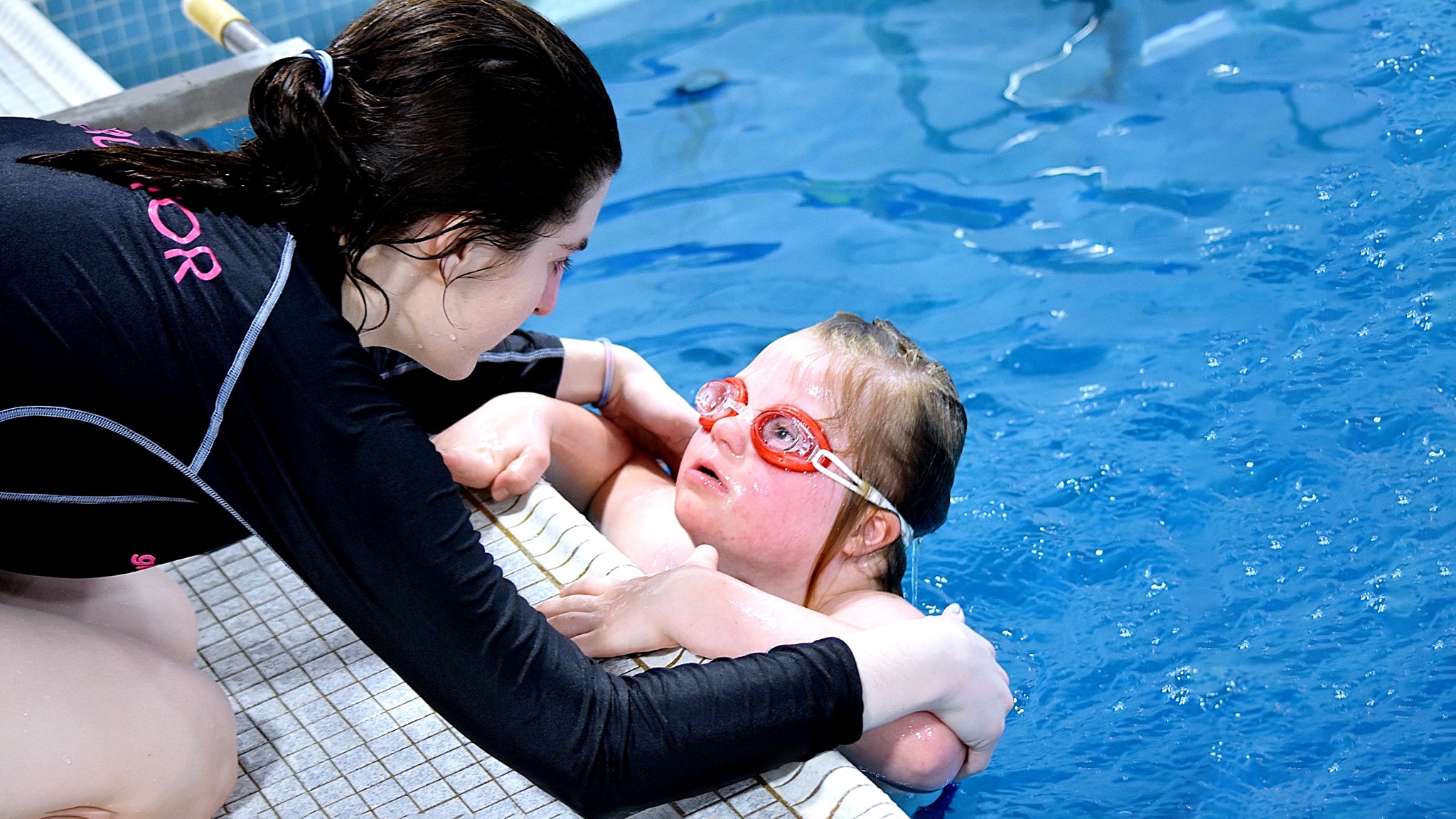
How Do I Know if the Swim Instructor Is Able to Adapt to My Child’s Needs?
- Ask the swim instructor how long they have been teaching swimming to typical students and how long for neurodivergent students or those with special needs/disabilities.
- Ask questions about the training that their adaptive programs are offering the swim instructors. Specifically ask these questions to get a deeper understanding of their experience level.
- How many hours of adaptive training have you completed?
- How many hours of traditional swim curriculum training have you completed?
- Can I see the special needs / adaptive swim training curriculum so I can understand if this will work for my child?
- Behavior therapists, special education professionals and health care workers are usually a good fit as an adaptive swim instructor. However, parents should enquire about the specific swim training credentials gained to teach swim skill acquisition and water safety (i.e. Basic Swim Instructor (BSI) or Water Safety Instructor (WSI) using American Red Cross; Starfish Aquatics Institute, Swim Lesson University certified or whether they are YMCA certified). This is to understand if the training they have attained makes them competent enough for your swimmer’s needs.
What Questions Should I Ask to Find Out How They Plan to Teach My Swimmer With Autism, Anxiety, Down Syndrome, Sensory or Motor Challenges?
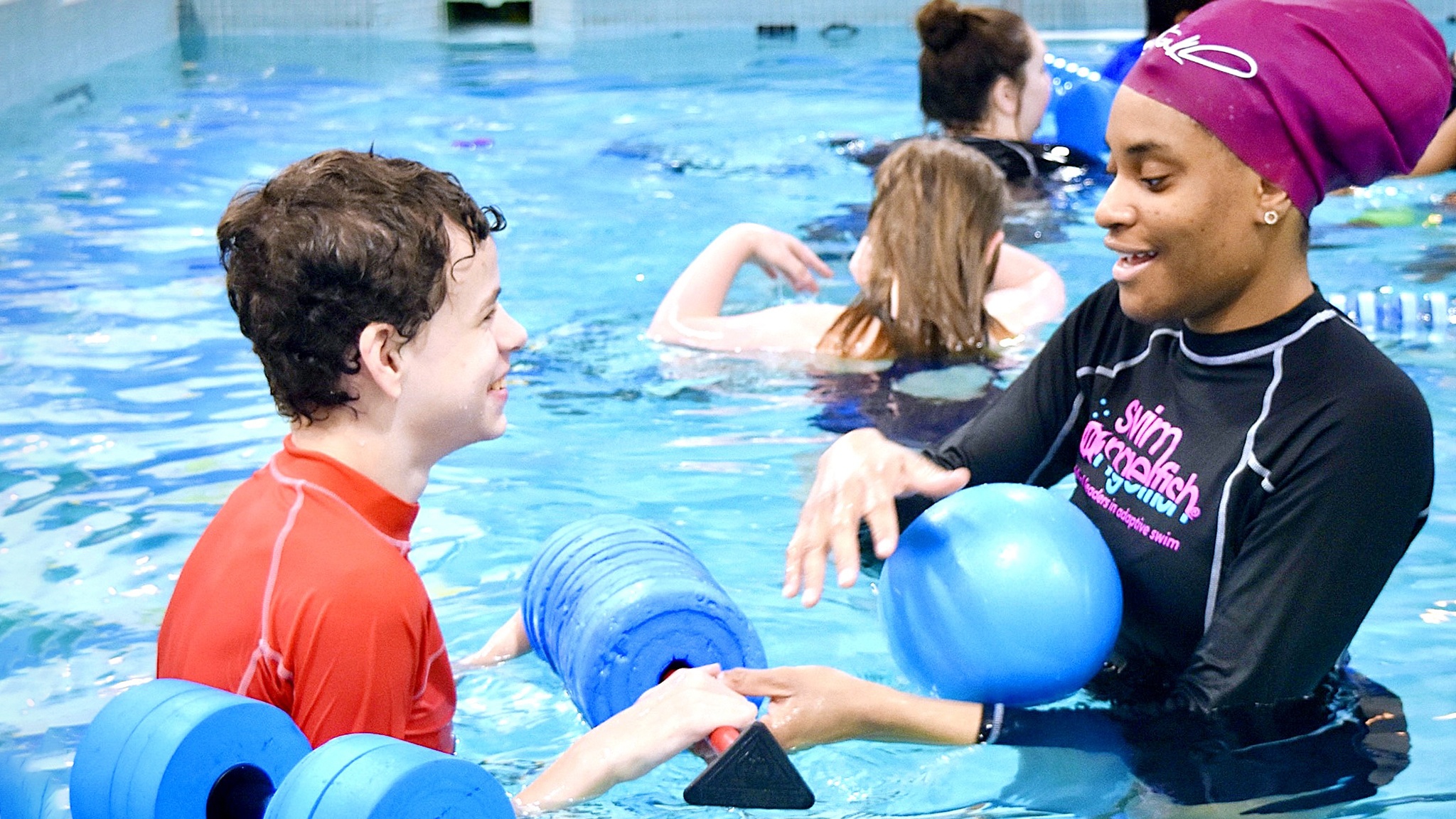
How Do You Know When to Suggest That a Student Transitions to Adaptive Swim Lessons?
2 key indicators would be:
I Want to Learn More About Adaptive Swim. What Education and Resources Are Available?
Swim Angelfish offers FREE mini-courses and an adaptive water safety toolkit that will introduce you to Adaptive Aquatics.
